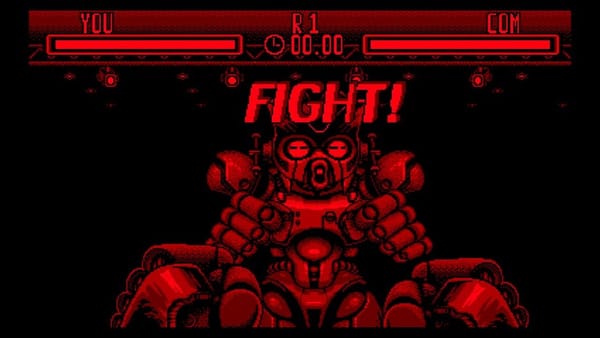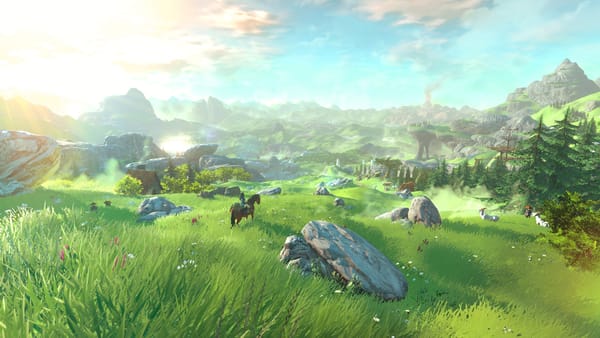#59: Passing the torch
In a way, I sort of owe Toshihiro Nagoshi — whose departure from RGG Studio and Sega has been confirmed overnight — my career as a game journalist. Back in the early 2000s, when I first discovered Edge, he had a monthly column that I think was supposed to be about games, but was really about whisky, and life in Japan and, well, whatever he felt like talking about in any given month. He was a perfect fit for Edge, I thought. Intelligent but aloof, hard-working yet hard-partying, a bit nerdy but clearly cool as fuck. I fell in love with Edge immediately, and before long I fell for Nagoshi, too. I first heard of Nagoshi’s Yakuza through Edge, and it would go on to become one of my favourite series. I have both the man and the mag to thank for that.
From the minute I first walked through the doors of Edge Towers in 2010, then, Nagoshi was on my interview wishlist. It would be almost a decade before I finally got to meet him, when I went to Japan to interview him for Edge’s 25th anniversary issue. The feature in question was Collected Works: effectively a whistle-stop retrospective of a developer’s career, one game at a time.
Nagoshi was an ideal subject for that, and while he was a little too aloof at first — as I sat down I got the impression he either didn’t know the interview was happening that day, or was simply very cross that it was — he soon opened up. He had some great stories and was incredibly generous with his time, given how busy he was. They say you should never meet your heroes, but when the interview and photoshoot were done and we shook hands and said our goodbyes, I had no regrets at all. I still get a pleasant little tingle when I think of that day, and at my age those are harder and harder to come by. We must take whatever little thrills we can.
When you try to condense a 30-year career into an hour and three quarters, well, obviously you gloss over some stuff. But you also get a very clear sense of how success affects a person’s work. When talking about the early years, Nagoshi regaled me with tales of the trenches, of long nights at his desk and of days deferring to upper management, taking direction he didn’t necessarily agree with. These stories, despite being decades old, are very specific. By the end, when he has become the person giving the orders, things are higher-level and more airy — more about vision and strategy than execution, because now his job is to decide what everyone else should do.
I don’t know how much of a role Nagoshi really played in development of the more recent Yakuza games. He maintained overall charge of the story and scenario, apparently, but it seems safe to assume he was less involved later on than he was at the beginning. But I still think of Yakuza as Nagoshi’s game, and not just because of how much of Nagoshi the man there is in Kiryu the character (and there is plenty). Moreover it is because we naturally associate famous characters with their famous creators — Mario is Miyamoto’s, Snake is Kojima’s, and so on.
But what happens when a creative talisman moves from the development floor to the boardroom, and new blood takes over the stewardship of a long-running series? How do you break new ground when the original building is still intact? I cannot imagine it is particularly helpful to have the old guard still kicking around, poking their head around the door from time to time. ‘Just making sure you’re not ruining my life’s work! Hahaha! Ah I’m just kidding. I’ll leave you to it, but please remember I can fire you very easily.’
I am reminded of some advice that was once given to a friend of mine. They had been the public face of something successful for a number of years, but knew they had to make way for the next generation. “It’s not theirs until it’s no longer yours.” Just as Kiryu eventually had to make way for a new protagonist to avoid Yakuza growing stale, so Nagoshi now heads off into the sunset, his employer of over 30 years in rude health and fine form, his legacy as one of Sega’s best developers forever set in stone.
“When I was making Yakuza 5,” Nagoshi said in our discussion, “I told my bosses I could do one or two more games with Kiryu and that would be it. I wanted to do something new, and while there was a risk of losing current fans, if we continued making it over and over, it would be more and more predictable, which was also a risk. Anything that you start has to end someday. And if we were to end something, I wanted to do it when it was kind of at its peak.”
Perfect. Ever so dusty in here all of a sudden, isn’t it.
MORE!
- Also leaving RGG Studio is Daisuke Sato, co-director of Binary Domain and more recently lead producer on the Yakuza series. I interviewed him on the same Tokyo trip and what an excellent fellow he was — warm, gracious and just so enthusiastic about his games and their players. Whether he’s joining Nagoshi on his rumoured move to NetEase, or going his own way, I’m not sure. Masayoshi Yokoyama, a writer on Yakuza 6 and producer of Lost Judgement, is the new studio director.
- Speaking of creative talisma- nope, sorry, bit of a reach. Randy Pitchford is stepping down as president of Gearbox Software, and has taken his collection of USB drives over to Gearbox’s new, sure-to-be-successful film and TV division.
- Koichi Sugiyama, composer of the Dragon Quest series, has died aged 90 and hopefully taken his many unpleasant beliefs with him.
- Bungie has confirmed it is removing the Tangled Shore, a destination introduced in Destiny 2’s 2018 expansion Forsaken, and sundry bits and bobs from the game when The Witch Queen arrives in February. The community isn’t especially happy at this latest example of a long-running game getting smaller before it can get bigger, something Hit Points has covered before. It’s a natural reaction, since it only involves the bad part of the equation; if you’re taking something away, you’d better be replacing it with something better. Rather ramps up the pressure on Bungie to deliver the goods in February, doesn’t it.
- Eidos’ studios in Montreal and Sherbrooke are adopting a four-day week. Lovely.
- The developer of Evolved Apes, an NFT-powered fighting game, has skedaddled with $2.7 million of sucke- erm, investors’ cash. Something about a fool and his money here. I forget the specifics.
- Twitch has acknowledged the enormous hack it suffered earlier in the week, though insists it has no evidence of login information being exposed. There is no trace of an apology in the blog post announcing it. Former employees reckon this has been coming, accusing the company of ignoring prior warnings and prioritising revenue over security.
There you go! A busy day to round out the week. It’s been a hard one, though more for personal reasons than professional ones, and I am far too tired to do the whole self-promo thing. Could you please save me the bother and imagine all that usual stuff is in here? Ads, SEO, 14p a day, all that. Buttons. Thank you. Subscriber-exclusive stuff kicks off next week! Providing I can get it done in time, anyway. Fans of Edge’s Collected Works will be on familiar-ish ground.
Tonight I will play Super Monkey Ball: Banana Mania and have a whisky or two. I was going to do that anyway, but it’s nice to have a professional justification for it for once. Have a great weekend, and I’ll see you on Monday.





